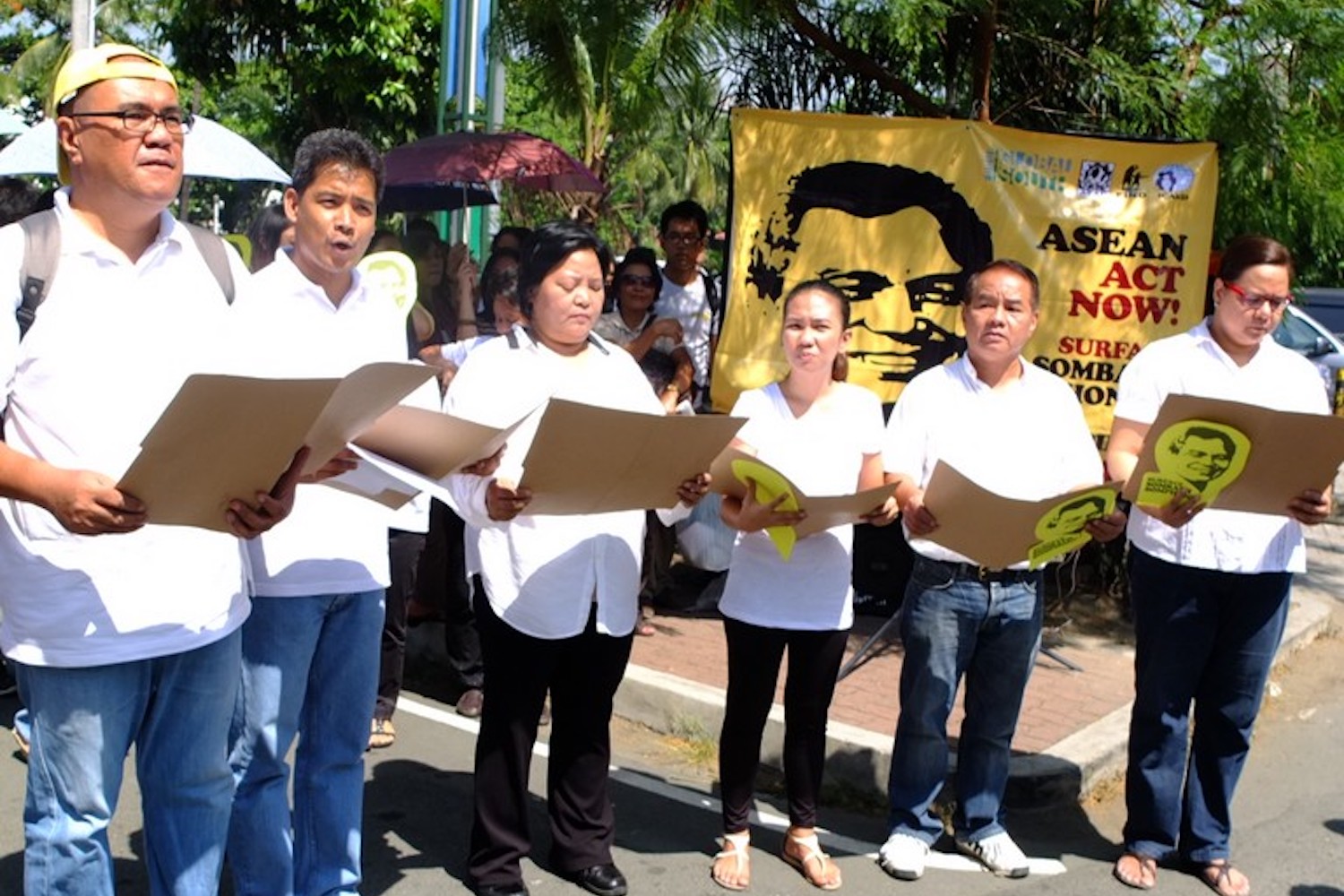Function 8: 08 March 2019

Today we are launching the first of a series articles about Sombath Somphone, a well-known Lao development worker who was abducted on 15 December 2012 – nearly seven years ago. Sombath Somphone’s disappearance was caught on Police CCTV, showing that Sombath was stopped by the police at a police post, and then later pushed into a white van. See https://www.youtube.com/watch?v=7-MmZUvMZWI&fbclid=IwAR1FQmGFvnlLQV8U9LBWmm45CjHhQpGRPlEpKNe3nTZzllAwaVc5oLnhK8U
The Lao Police and the Lao Government denied they were involved, but his wife and family have never been given any details about the investigations into his disappearance.
Through these articles, we hope to inform our readers about Enforced Disappearances, one of the most heinous form of human rights violations, which is still commonly used in many countries in ASEAN to silence their dissidents or critics. We also hope to support his wife, Ng Shui Meng, a Singaporean, to seek truth and justice for her husband, Sombath Somphone, and to urge the Lao Government to resolve the case and to return Sombath to his family.
Who is Sombath Somphone?
Sombath Somphone was born in 1952 in a poor village near the Mekong River in central Laos. He grew up, like so many farm boys from rural Laos, working in the rice fields, fishing in the rivers and ponds, and hunting in the forests to help his family. Growing up poor, and living so close to nature taught Sombath the meaning of poverty and the importance of the natural environment for survival. This understanding later shaped his commitment to work to promote sustainable development and environmental protection as the basis for food security, material well-being and stable livelihoods for Lao communities.
Even though Sombath’s family was poor, Sombath’s love for learning and determination helped him win a USAID scholarship in 1970 to study Education and Agriculture at the University of Hawaii. He completed his Masters in Agriculture and returned to live in Laos in 1979. This was soon after the end of the Indochina War in 1975 and the founding of the Lao People’s Democratic Republic under the Lao Communist Party.
Sombath could have remained in the United States, like his other Laotian classmates, who did not want to return to their war-torn homeland under communist rule. But Sombath chose to go back to Laos because his family needed him, and also because he wanted to use his skills in agriculture to help farmers improve their livelihoods.
Over the next three decades, he worked with rural communities all across the country, sharing his knowledge and skills in low-cost and improved agriculture techniques. He did not work only in agriculture, but also in forest conservation; improved water and sanitation, setting up of small recycling centers; training of young people to become change agents in schools and communities; and helping rural groups, especially women groups, to establish small-scale rural enterprises.
Sombath’s approach to development is also very much rooted in a Buddhist rejection of modern materialism. He is a leading proponent in Laos of the idea that development must come from within, and must be ecologically sustainable. He advocated ‘gross national happiness’ rather than the narrow definition of development that emphasizes large gains in material wealth. He was an articulate and prominent practitioner of this philosophy in Laos and has developed close ties with other leading proponents of Buddhist-based development throughout the region.
In 1996, he officially established PADETC (Participatory Development Training Center), a first-ever Lao-NGO, to foster sustainable, equitable, and self-reliant development in Laos. It uses participatory learning and training of young people, civil society groups, and community leaders to become the key change agents in their communities, with an emphasis on a balance of economic development, ecological sustainability, cultural integrity, and spiritual well-being.
Over the years, Sombath’s tireless and dedicated work earned him a great deal of respect and following, first inside Laos and later also increased recognition in the region and beyond. In 1973, he was awarded the UN ESCAP (Economic and Social Commission for Asia and the Pacific) Award on Poverty Reduction. In 2005, he won the prestigious Ramon Magsaysay Award for Community Leadership, the equivalent of the Nobel Prize for Asia.
In the citation of the award given to Sombath, the Ramon Magsaysay Foundation said:
… Sombath presides unobtrusively yet restlessly over PADETC’s many projects. His hopes rest with the young. He urges them to remain mindful of their country’s traditional values even as global forces grow stronger. Development is good, he assures them, but for development to be healthy, it “must come from within.”
The work of Sombath Somphone was unfortunately cut short by his enforced disappearance on 15 December 2012. His disappearance is a great tragedy, not only for his family, friends and colleagues, but also a tragedy for the Lao people and the country as a whole.
In subsequent articles we will share with you more of the circumstances around Sombath’s disappearance as well as some of the innovative work he did in Laos.

